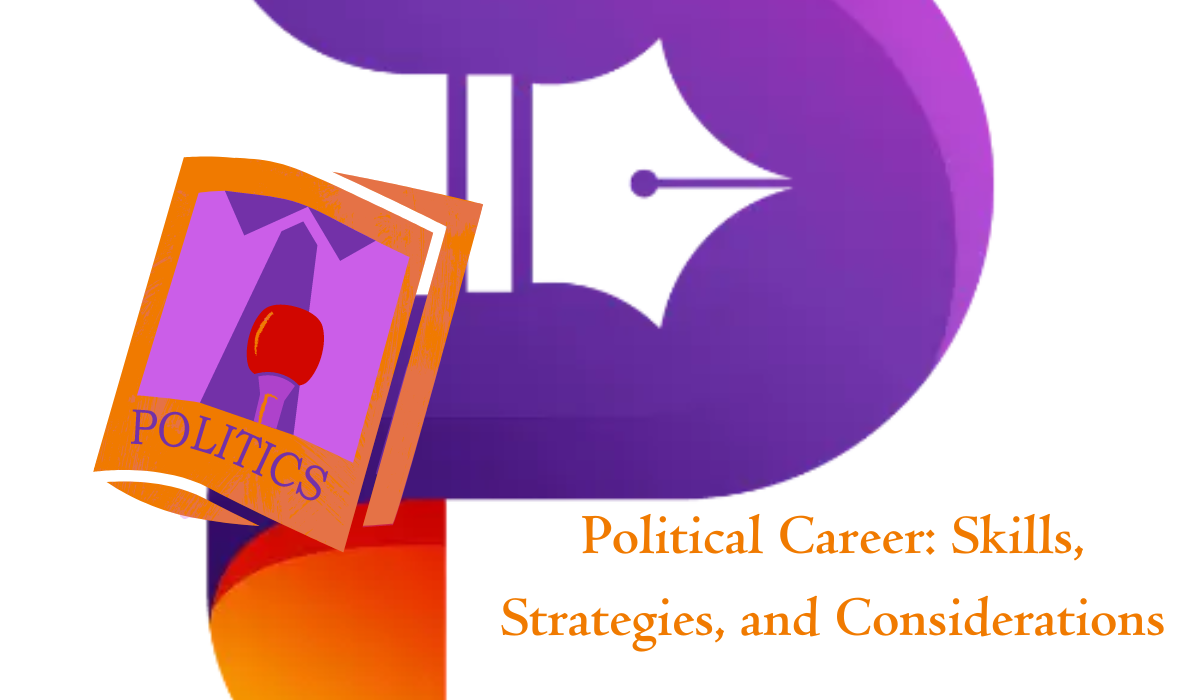
Embarking on a political career can be a challenging yet rewarding journey. Whether you aspire to become a politician, work as a political consultant, or contribute to public service in any other capacity, it is essential to have a clear understanding of the skills, strategies, and considerations involved in choosing a political career path. In this article, we will explore the key factors to consider and provide valuable insights to help you navigate this complex field.
Contents
The Importance of Political Skills
Political careers require a unique set of skills that enable individuals to thrive in a competitive and ever-changing environment. While the specific skills may vary depending on the role and level of involvement, there are several core competencies that are crucial for success in the political arena.
1. Communication Skills
Effective communication is the cornerstone of any political career. Whether it’s delivering speeches, engaging in debates, or connecting with constituents, the ability to articulate ideas clearly and persuasively is paramount. Strong communication skills also include active listening, empathy, and the ability to build relationships with diverse groups of people.
2. Leadership Abilities
Leadership skills are essential for anyone aspiring to have a political career. Effective leaders possess qualities such as vision, integrity, and the ability to inspire and motivate others. They are skilled at decision-making, problem-solving, and delegating tasks to achieve their goals.
3. Analytical Thinking
In the political landscape, critical thinking and analytical skills are vital. Politicians and political consultants must be able to analyze complex issues, evaluate data and evidence, and make informed decisions. These skills enable them to develop effective strategies, anticipate potential challenges, and adapt to changing circumstances.
4. Emotional Intelligence
Emotional intelligence, or the ability to understand and manage one’s emotions and empathize with others, is a valuable skill in politics. It enables individuals to navigate conflicts, build coalitions, and establish trust and rapport with colleagues and constituents. Emotional intelligence also plays a crucial role in effective negotiation and diplomacy.
5. Networking and Relationship-Building
Networking and relationship-building are essential components of a successful political career. Building a strong network of contacts, allies, and mentors can provide valuable support, guidance, and opportunities. Effective relationship-building skills also help politicians gain the trust and support of constituents and stakeholders.
Strategies for Building a Political Career
Building a political career requires careful planning, strategic thinking, and a proactive approach. Here are some strategies to help you navigate the path to a successful political career:
1. Define Your Goals
Begin by clarifying your long-term and short-term goals in politics. Do you aspire to hold public office, work behind the scenes as a political consultant, or contribute to public service in other ways? Defining your goals will help you make informed decisions and chart a clear path forward.
2. Gain Relevant Education and Experience
Acquiring a solid educational foundation in political science, public policy, or a related field is beneficial for a political career. Consider pursuing internships, volunteering for political campaigns, or working for elected officials to gain practical experience and develop a deeper understanding of the political process.
3. Build a Strong Network
Networking is a critical aspect of building a political career. Attend political events, join professional associations, and connect with individuals who share your interests and aspirations. Building relationships with influential individuals in the political sphere can open doors to opportunities and provide valuable guidance and support.
4. Develop a Personal Brand
In today’s digital age, having a strong personal brand is essential for politicians and political professionals. Cultivate an online presence through social media platforms and a professional website. Clearly communicate your values, expertise, and accomplishments to establish yourself as a credible and trustworthy figure in the political arena.
5. Get Involved in Community Engagement
Active community engagement is an effective way to gain visibility and build a positive reputation. Volunteer for local organizations, participate in community events, and engage with constituents to understand their needs and concerns. This involvement demonstrates your commitment to public service and can help you build a solid support base.
Considerations for a Political Career
While a political career can be fulfilling, it is important to consider the challenges and potential drawbacks before committing to this path. Here are some key considerations:
1. Public Scrutiny
Politicians are subject to intense public scrutiny and criticism. Your actions, statements, and personal life may be constantly under the microscope. It is crucial to be prepared for this level of scrutiny and develop resilience to navigate through challenging situations.
2. Work-Life Balance
Political careers often demand long hours, extensive travel, and time away from family and personal commitments. Maintaining a healthy work-life balance can be challenging, and it is important to consider how this may impact your personal relationships and overall well-being.
3. Ethical Considerations
Politics can present ethical dilemmas and require difficult decision-making. Consider your personal values and how they align with the demands of a political career. Upholding ethical standards and maintaining integrity should be a priority throughout your political journey.
4. Financial Considerations
Political careers can be financially rewarding, but they often require significant investments of time and resources. Consider the financial implications of running for office, funding political campaigns, or pursuing a career in politics. It is important to have a realistic understanding of the financial commitments involved.
5. Continuous Learning and Adaptation
The political landscape is constantly evolving, and successful politicians must be adaptable and committed to continuous learning. Staying informed about current events, policy changes, and emerging trends is essential to navigate the complexities of the political arena.
Conclusion
Choosing a political career path is a significant decision that requires careful consideration of skills, strategies, and various factors. By developing essential political skills, implementing effective strategies, and considering the potential challenges, you can embark on a rewarding and impactful journey in the world of politics. Remember to stay true to your values, remain dedicated to public service, and continuously strive for personal and professional growth.






